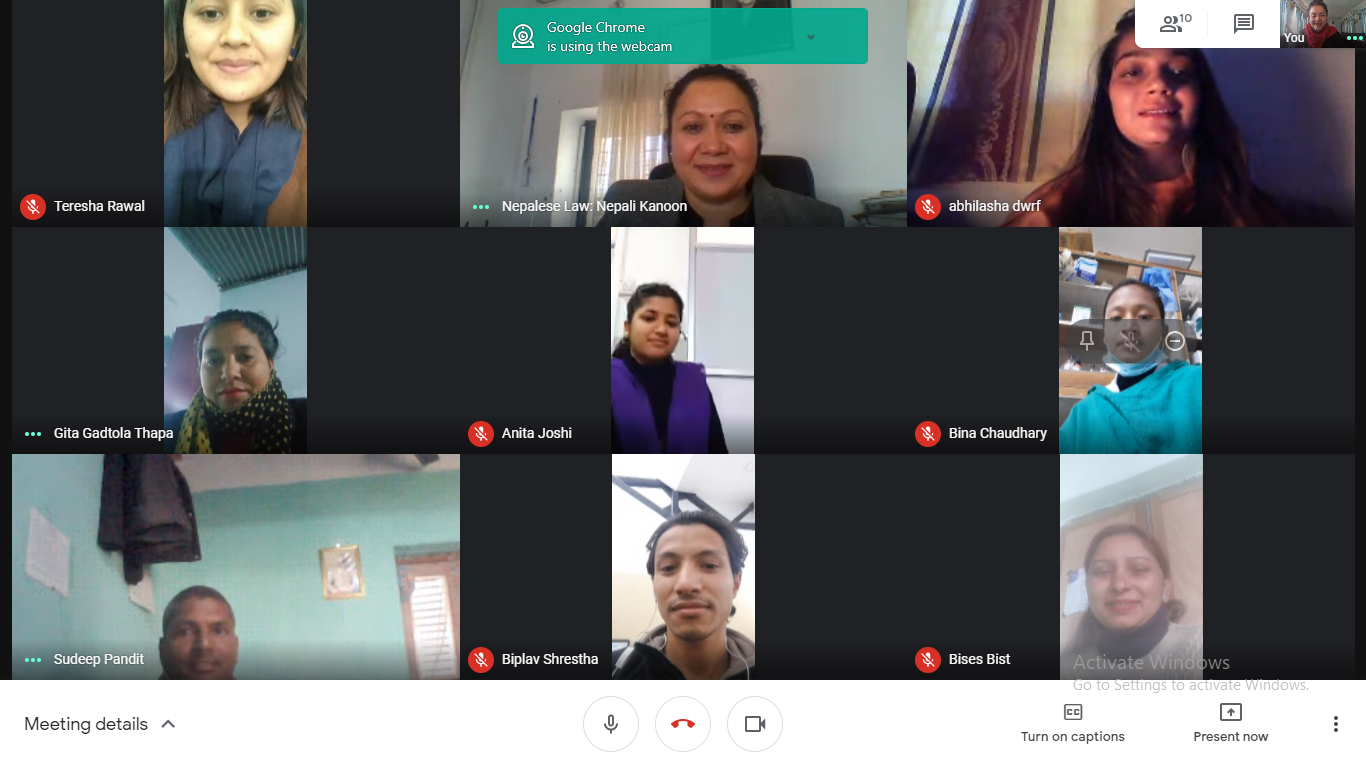Human Rights and Good Governance
Gender Based Violence (GBV)
From the starting of the organization, LACC has been focusing on Gender Based Violence (GBV) and has been fighting for women who are the victims of domestic violence and other Gender Based Violence. LACC has been providing free legal aid to survivors of GBV. Along with that, LACC has also conducted various other activities such as conducting Trainings to Trainers (ToT) for youths both at national and local level and workshop on Gender based violence.
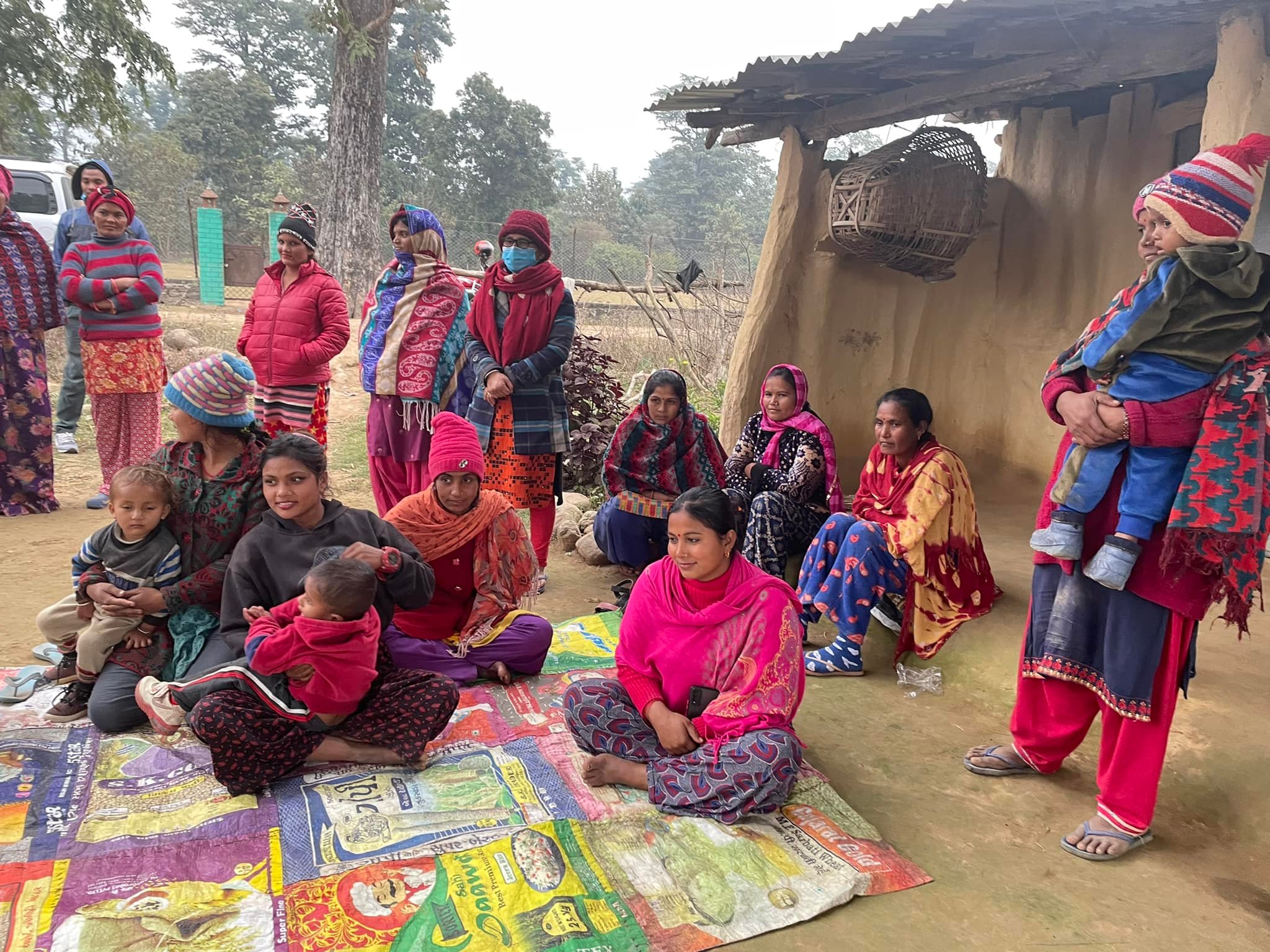
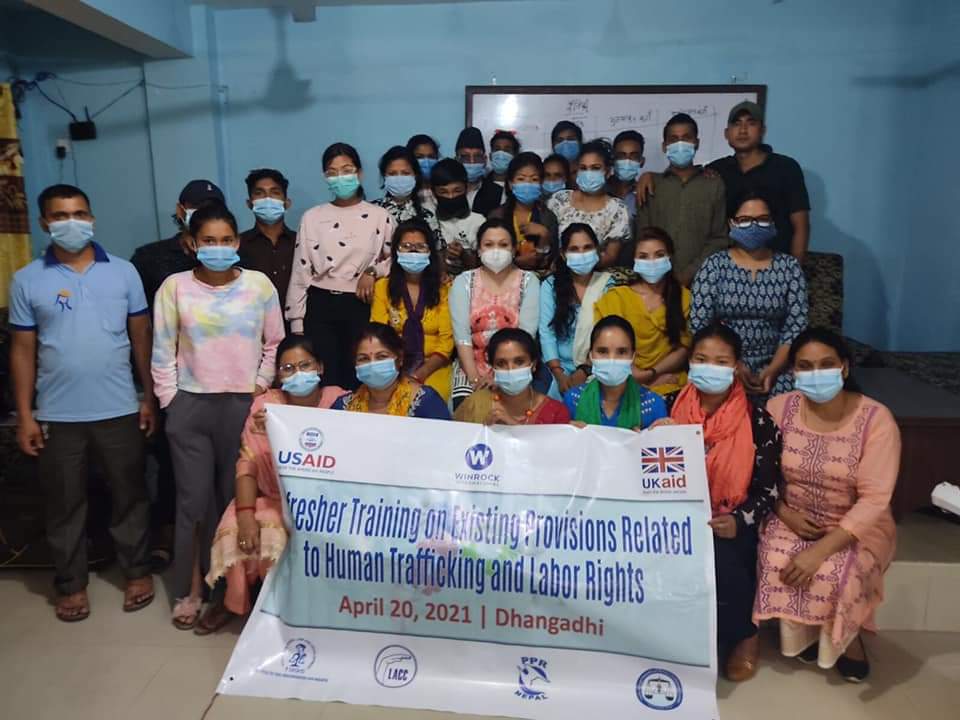
Human Trafficking
LACC works for combating human trafficking through various initiatives. In the policy level, it advocates for proper implementation of National Action Plan on combating Human Trafficking. LACC advocates and works to minimize the risk of trafficking through mobilizing trained networks, strengthening their capacity, raising awareness and providing paralegal services to the survivors of human trafficking. LACC has a wide range of referral networks through which, the survivors of human trafficking are provided various basic services.
LACC has been working to combating human trafficking since the beginning either through collaboration with other organizations or direct involvement with the vulnerable communities. More specifically, immediately after the earthquake in 2015, LACC Nepal conducted series of trainings on anti-human trafficking issues focusing on VDC Secretaries along with mass media mobilization in the earthquake affected districts to prevent trafficking in girls and women. Recently, LACC is working in the area of human trafficking focusing on the rights of workers in entertainment sectors.
Sexual and Reproductive Health Rights (SRHR)
SRHR promotes reproductive decision-making, freedom from forced abortion, access to information and appropriate reproductive education; freedom from harmful traditional practices and gender based violence and freedom to express one's sexuality. Nepal has shown its commitment to International human rights instruments by ratifying major conventions and by endorsing International Conference on Population and Development (ICPD), it has ensured women's sexual, reproductive and health rights. In this aspects, LACC lobbies members of parliament, public policy advisors and government representatives to enact relevant gender friendly draft bills, abolish discriminatory laws, and meet its obligations under the International human rights instruments to which Nepal is signatory.
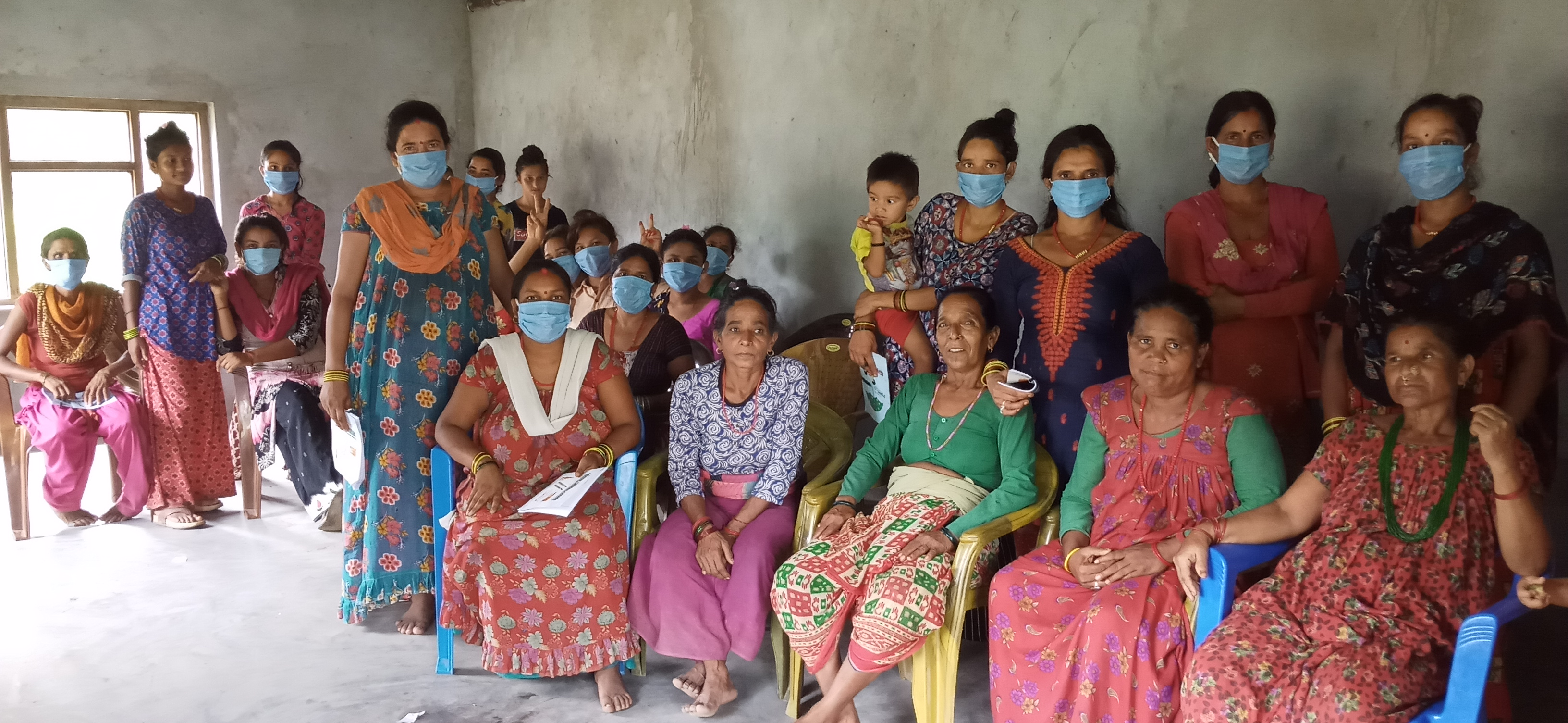
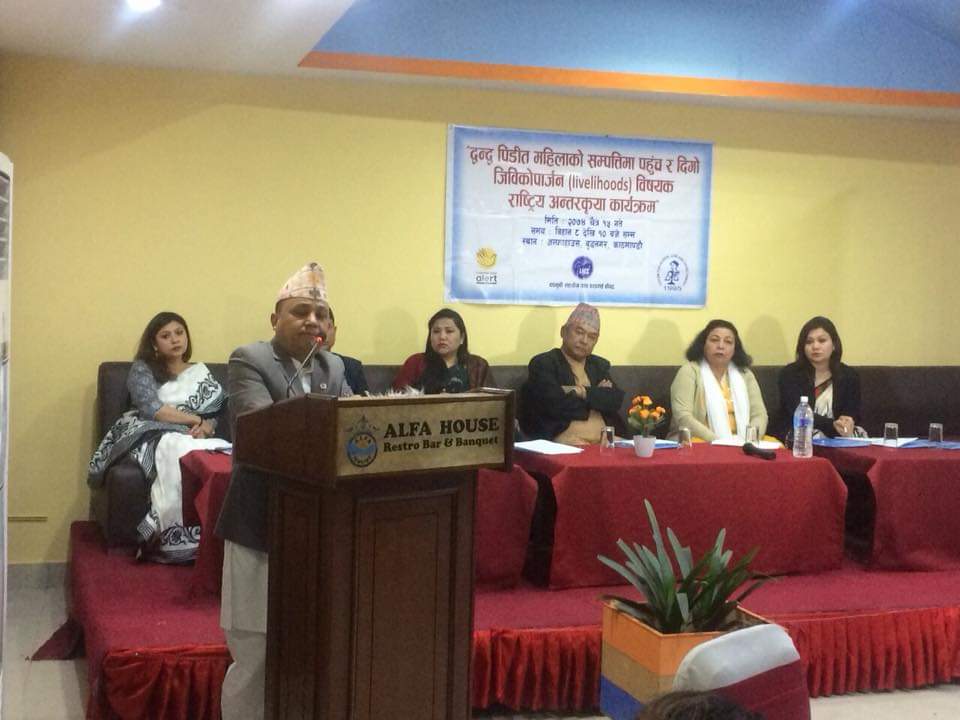
Transitional Justice
LACC Nepal has also worked for transitional justice through different activities both at policy and community levels. For instance, in 5 conflict-affected districts (Dang, Dailekh, Surkhet, Achham and Kailali), LACC in partnership with UN-WOMEN provided legal services along with medical and counseling support to the conflict affected people. It carried out the oral history recordings of conflict victims and worked with then-Local Peace Committees (LPCs). LACC also provided conflict management trainings to conflict affected people.
In 2010, LACC Nepal filed a Writ in the Supreme Court against the existing policy provisions of property right in which family of disappeared person has to wait for 12 years to be able to own and enjoy the property essentially depriving them from socio-economic and property rights. The Supreme Court ordered to frame the necessary law to address this issue.
Minorities Rights
Minorities people in Nepal including women, children, Dalits, Janajatis, Madhesis, people from the Far West, and sexual and gender minorities, lived less-privileged lives. LACC is always working for protection and promotion of the minorities' rights by providing free legal services, addressing their property issues, creating legal awareness, supporting gender issues for women within minorities and third gender who suffer double discrimination. LACC has used different strategies to reach out to the concerned stakeholders to sensitize and raise awareness. It conducts various workshops and seminars to reach out to the high level authorities concerning policies, laws and challenges on minorities' issues. In the community level, awareness raising programs and various outreach programs are conducted for minority people.
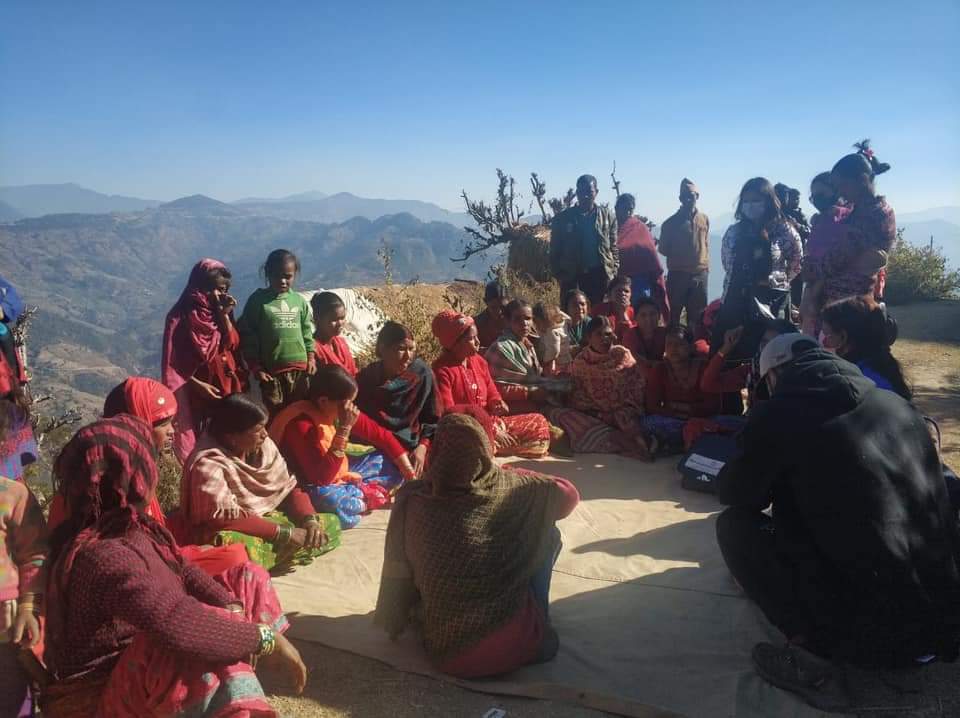
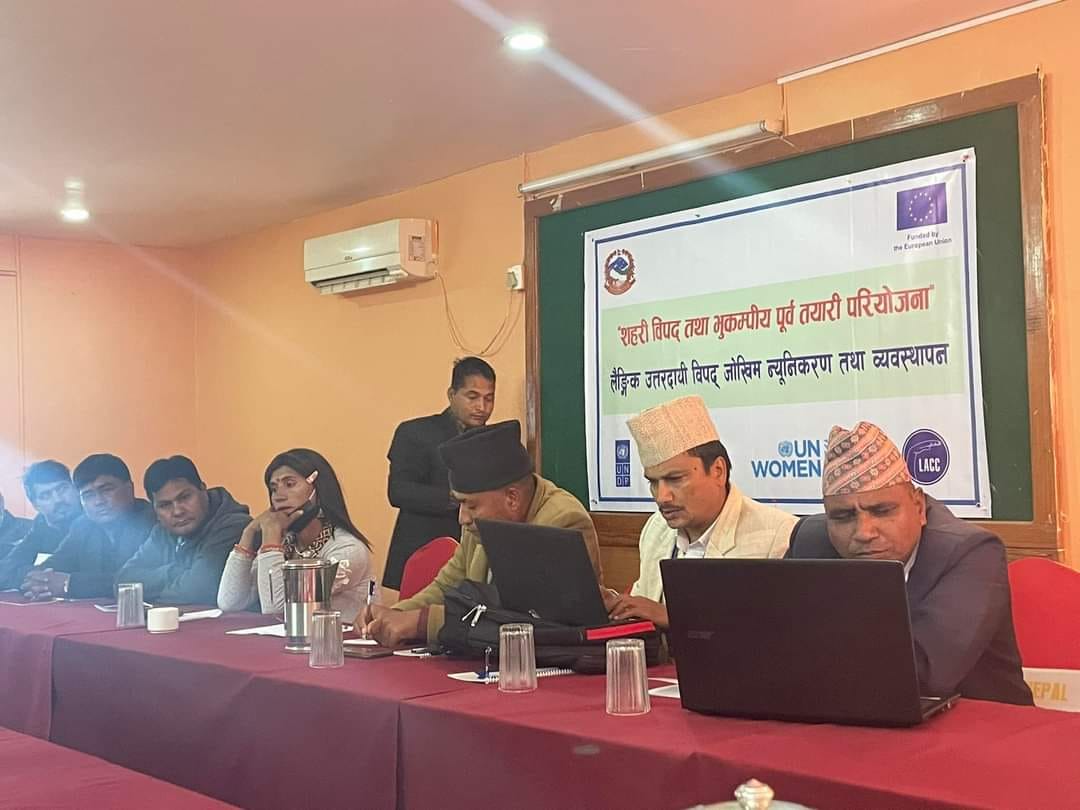
Disaster Risk Reduction (DRR)
After the earthquake of 2015, LACC established a 'legal desk' for addressing post earthquake cases of gender based violence and marginalized communities. Free legal aid services such as instant legal counseling, paralegal services, free legal aid including initial drafting to Implementation and other referral and legal related services for survivors of gender based violence in the post disaster surroundings were provided through the Legal Desk. LACC also conducted Capacity Strengthening Training to the local level mechanism related to disaster related Justice System in most affected districts which are Sindhupalchowk and Kavre. LACC conducts various other activities related to DRR such as mobile legal camps, coordination meetings with districts and local level authorities, dissemination of Public Service Announcement (PSA) and dissemination of informative leaflets related to disaster management and legal information.
Promotion of Sexual Reproductive Health Rights (SRHR) and Elimination of Chhaupadi
Virtual Training Session on Promotion of Sexual Reproductive Health Rights (SRHR) and Elimination of Chhoupadi. This Training has been developed for the promotion of SRHR and Ending Chhoupadi. The training is designed to build the capacity of health personnel, elected members of local government, and Concerned government employees From Achham and Kailali District. The main agenda of the training was to help individuals develop skills in communication, Advocacy, and leadership on the subject matter such as Gender, Gender Based Violence, Legal frameworks on SRHR and Chhoupadi, Women's body politics on SRHR, and Dignified Menstruation.
SRHR promotes reproductive decision-making, freedom from forced abortion, access to information and appropriate reproductive education; freedom from harmful traditional practices and gender based violence and freedom to express one's sexuality. Nepal has shown its commitment to International human rights instruments by ratifying major conventions and by endorsing International Conference on Population and Development (ICPD), it has ensured women's sexual, reproductive and health rights. In this aspects, LACC lobbies members of parliament, public policy advisors and government representatives to enact relevant gender friendly draft bills, abolish discriminatory laws, and meet its obligations under the International human rights instruments to which Nepal is signatory.
